Inaugural Professorial Lecture Series 2014
The Inaugural Professorial Lecture Series at the University of Waikato introduces our newest professors to the community. We invite the public to come along to find out what our people are doing and how their work is having a real impact on the world around us. The 2014 series showcased some of the latest research in Education, Science and Management.
All lectures are free and open to the public.
2014 Lectures
18 November 2014
The more we know, the more we don't know: Flood risk management in the 21st Century'
Professor Iain White, Faculty of Arts and Social Sciences
 How do societies manage uncertain environmental risks? Why is flooding so hard to manage? And how can we make water proof buildings?
How do societies manage uncertain environmental risks? Why is flooding so hard to manage? And how can we make water proof buildings?
Professor Iain White specialises in the field of environmental planning. His work takes an interdisciplinary perspective that aims to better understand the nature of environmental problems and how they can be addressed.
In his upcoming Inaugural Professorial Lecture Iain will provide insights into the difficulties in managing the risk of flooding and the new approaches to keeping water out of buildings.
He has been awarded research funds totalling over $2.5m from a variety of sources, including the European Union, various government departments and national research bodies, the private sector and the Asia Pacific Network.
His most recent project has involved researching the possibility of making houses resilient to flooding, from the materials used, to the institutional barriers, to the views of residents. The project involved seven different countries and resulted in new national guidance written in partnership with government, industry and citizens.
Prior to joining the University of Waikato as Professor of Environmental Planning in 2013, Iain was the Director of the Centre for Urban and Regional Ecology at the University of Manchester, UK. He holds a degree in Geography, a masters degree in Town and Country Planning and a PhD in Environmental Planning.
View Professor Professor Iain White's full lecture on the University of Waikato's iTunes U channel.

14 October 2014
Measuring time in antiquity: Archaeoastronomy in the Greek and Roman worlds
Professor Robert Hannah, Faculty of Arts and Social Sciences
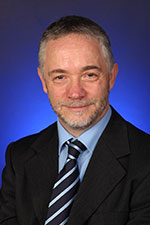 How was time measured in ancient Roman and Greek society? How did emperors and leaders control their people by manipulating time? And what role did the sun and stars play in the calendar?
How was time measured in ancient Roman and Greek society? How did emperors and leaders control their people by manipulating time? And what role did the sun and stars play in the calendar?
Professor Robert Hannah, Dean of the Faculty of Arts and Social Sciences (FASS) at the University of Waikato is an international expert on issues relating to time in the ancient Greek and Roman worlds. His work has focused principally on the medium of archaeoastronomy, a specialised scientific field, but he also has interests in the iconography of Greek mythology, and the Classical tradition in art.
In his upcoming Inaugural Professorial Lecture Measuring time in antiquity: Archaeoastronomy in the Greek and Roman worlds, Professor Hannah will give an overview of his extensive work in these areas and will present case studies on recent and planned future research projects he is involved in.
These include a study of the astronomical and calendrical significance of major structures in ancient imperial Rome: the obelisk of Augustus and the Pantheon of Hadrian, and how virtual 3D modelling is being used to uncover the mysteries of these ancient structures; as well as his part in a large team of professionals from around the world working to unlock the secrets of the ancient Greek Antikythera Mechanism, sometimes called the world's first computer, dating to the 2nd Century BCE.
He has Marsden funding worth $590,000 to research the setting of ancient Greek temples within three landscapes – the topographical, the built and the celestial — aiming to understand these iconic remains in their own contexts. This work has led to a joint project in the future at the University of Waikato, which will look at Māori astronomy and its relationship with the local landscape in the North Island.
Before joining the University of Waikato in 2013, as the Dean of FASS, Professor Hannah was Professor in Classics and the Associate Dean of Research for Humanities at Otago University, where he taught courses in Greek and Roman art and had also gained a BA Hons in Greek. He also holds an MPhil in Classical Archaeology from Oxford University, is Honorary Curator of the Classical Collections of the Otago Museum, was elected to a Fellowship of the Society of Antiquaries of London in 2008, and to a Fellowship of the Royal Society of New Zealand in 2013. He is a multiple Marsden Grant winner.
View Professor Professor Robert Hannah's full lecture on the University of Waikato's iTunes U channel.

9 September 2014
Fish in Freshwater – Made in the Shade
Professor Brendan Hicks, Faculty of Science and Engineering
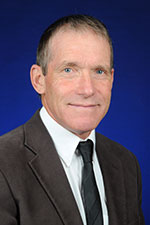 Despite starting out as a botanist, Professor Brendan Hicks' general interest in biology eventually led him to freshwater fish. He's now one of the leading freshwater fish experts in the country and his area of expertise is freshwater fish ecology and environmental relations.
Despite starting out as a botanist, Professor Brendan Hicks' general interest in biology eventually led him to freshwater fish. He's now one of the leading freshwater fish experts in the country and his area of expertise is freshwater fish ecology and environmental relations.
"That's how one species relates to another, and how species interact with the environment."
"We try to pick apart the system and understand what makes it tick. We use conceptual models to look at ecosystem responses to environmental changes," he says.
Professor Hicks was part of the team that developed New Zealand's only electrofishing boat - which temporarily immobilises fish, enabling them to be caught and analysed.
He is also heavily involved in studies to learn more about ways to control the invasive koi carp, including the so-far unsuccessful search to turn them into a commercial resource.
His lecture will provide something of an overview of his career so far. Prior to joining the University of Waikato in 1992, Professor Hicks worked with the Ministry of Agriculture and Fisheries (MAF). In the mid-1980s, he received a National Research Association Council Fellowship to do his PhD at Oregon State University, where he spent four years studying the effects of land use on fish. "Over there, it's primarily forestry and its impact on freshwater and salmon. When forests are felled, shade is lost, water heats up, things happen faster. It causes all kinds of changes in the fish community."
View Professor Professor Brendan Hicks' full lecture on the University of Waikato's iTunes U channel.
15 July 2014
My Father was a race alien: Globalisation and immigration in New Zealand
Professor Michèle Akoorie, Waikato Management School
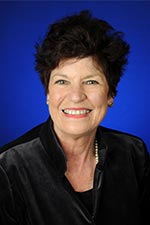 Living in multi-cultural New Zealand today, it's hard to imagine what life was like for those who came here from non-European countries during the 20th century and were classified as 'race aliens'.
Living in multi-cultural New Zealand today, it's hard to imagine what life was like for those who came here from non-European countries during the 20th century and were classified as 'race aliens'.
In her Inaugural Professorial Lecture this month, Professor Michèle Akoorie, from the University of Waikato's Management School, will tell the tale of her father as a young Lebanese man leaving behind the hardships of his home country to search for new opportunities in New Zealand during the mid-20th century.
"My sister and I were brought up as New Zealanders but our Lebanese heritage was down played," she says. "Growing up, I was ashamed of my background."
This family history had a profound effect on Professor Akoorie and led her on a research journey which considers aspects of globalisation and immigration in New Zealand.
Professor Akoorie is a graduate of Auckland University and holds an MBA in Export Management and International Business (with distinction) from Cass Business School, London, and a DPhil from the University of Waikato. Her specialisation is International Management and she has published several books and a number of journal articles in this field.
View Professor Professor Michèle Akoorie's full lecture on the University of Waikato's iTunes U channel.

17 June 2014
Making, shaking and breaking: Why do solid materials behave like they do and how do we improve them?
Professor Kim Pickering, Faculty of Science and Engineering
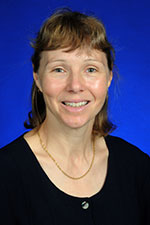 From the houses we live in and the cars we drive, to the computers and smart phones we use, much of our daily activity, comfort level and to a large degree, even happiness, relies on our interaction with materials.
From the houses we live in and the cars we drive, to the computers and smart phones we use, much of our daily activity, comfort level and to a large degree, even happiness, relies on our interaction with materials.
In her Inaugural Professorial Lecture this month, Professor Kim Pickering, from the University of Waikato’s School of Engineering, will use examples from her career to demonstrate how materials science and engineering is a key driver for technological development and national economic success.
Professor Pickering first came to the University of Waikato in 1994, there were only three other people working in Engineering. Twenty years on, there are now about 20 academic staff members, including a team of staff dedicated to materials research.
View Professor Kim Pickering's full lecture on the University of Waikato's iTunes U channel.

20 May 2014
The politics of evidence: Assessment agenda
Professor Bronwen Cowie, WMIER, Faculty of Education
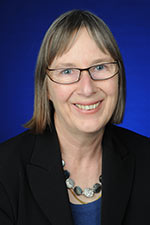 What counts as evidence of student success, for whom and for what goal – are questions all educators need to be asking in this current climate, says Education Professor Bronwen Cowie.
What counts as evidence of student success, for whom and for what goal – are questions all educators need to be asking in this current climate, says Education Professor Bronwen Cowie.
Citing the example of the OECD Programme for International Student Assessment (PISA), Bronwen will consider the influence of powerful global testing regimes on the one hand, and of information on student learning that is generated moment-to-moment in classrooms, on the other. She will argue that it is important to understand how policies and practices that span multiple organisational contexts get taken up in local settings, and how, in turn, these settings have their own politics and practices. "It is a concern that government responses to such results can be to narrow the curriculum and methods used to generate evidence of learning," she says.
Focusing on student-teacher classroom experience, Bronwen notes that New Zealand educators have worked hard to ensure what they teach and assess considers the local cultural context and knowledge of the learner. She hopes her lecture will raise contentious questions for educators interested in the agenda driving current educational decision-making.
Professor Cowie is the Director of the Wilf Malcolm Institute of Educational Research based in the Faculty of Education.
View Professor Brownwen Cowie's full lecture on the University of Waikato's iTunes U channel.

11 March 2014
Beyond the piggy bank: Making financial literacy fly
Professor Stuart Locke, Waikato Management School
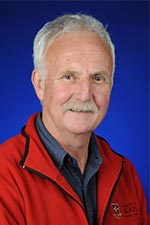 Finance professor Stuart Locke says New Zealanders need to get much savvier about money. It concerns him that most Kiwis leave school knowing very little about money markets, mortgages, interest rates, KiwiSaver and consumer rights, and after school there are few opportunities to wise up.
Finance professor Stuart Locke says New Zealanders need to get much savvier about money. It concerns him that most Kiwis leave school knowing very little about money markets, mortgages, interest rates, KiwiSaver and consumer rights, and after school there are few opportunities to wise up.
With money affecting just about everything we do, Professor Locke has chosen to talk about the importance of financial literacy in his inaugural professorial lecture. He says in a small business, a lack of knowledge means it’s hard to make sound business decisions; at corporate level you’re unlikely to be involved in decision-making if you don’t understand how money works.
Professor Locke joined Waikato University in 1999 and is chair of the Finance Department at Waikato Management School.
View professor Stuart Locke's full lecture on the University of Waikato's iTunes U channel.
